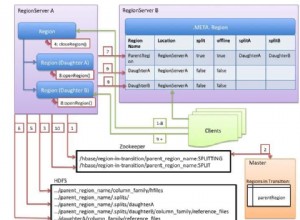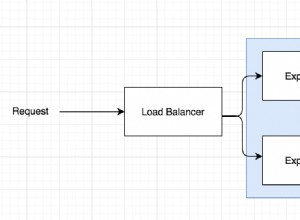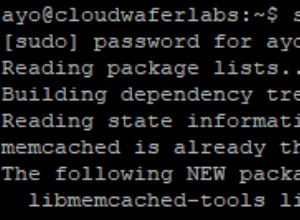Untuk mencapai tujuan ini kita perlu membuat permutasi dari semua jalur yang diizinkan. Misalnya:
type Structure = {
user: {
name: string,
surname: string
}
}
type BlackMagic<T>= T
// user.name | user.surname
type Result=BlackMagic<Structure>
Masalah menjadi lebih menarik dengan array dan tupel kosong.
Tuple, larik dengan panjang eksplisit, harus dikelola dengan cara ini:
type Structure = {
user: {
arr: [1, 2],
}
}
type BlackMagic<T> = T
// "user.arr" | "user.arr.0" | "user.arr.1"
type Result = BlackMagic<Structure>
Logikanya lurus ke depan. Tapi bagaimana kita bisa menangani number[] ? Tidak ada jaminan bahwa indeks 1 ada.
Saya telah memutuskan untuk menggunakan user.arr.${number} .
type Structure = {
user: {
arr: number[],
}
}
type BlackMagic<T> = T
// "user.arr" | `user.arr.${number}`
type Result = BlackMagic<Structure>
Kami masih memiliki 1 masalah. Tupel kosong. Array dengan elemen nol - [] . Apakah kita perlu mengizinkan pengindeksan sama sekali? Aku tidak tahu. Saya memutuskan untuk menggunakan -1 .
type Structure = {
user: {
arr: [],
}
}
type BlackMagic<T> = T
// "user.arr" | "user.arr.-1"
type Result = BlackMagic<Structure>
Saya pikir hal yang paling penting di sini adalah beberapa konvensi. Kami juga dapat menggunakan string `"tidak pernah". Saya pikir terserah OP bagaimana menanganinya.
Karena kami tahu bagaimana kami perlu menangani kasus yang berbeda, kami dapat memulai implementasi kami. Sebelum melanjutkan, kita perlu mendefinisikan beberapa helper.
type Values<T> = T[keyof T]
{
// 1 | "John"
type _ = Values<{ age: 1, name: 'John' }>
}
type IsNever<T> = [T] extends [never] ? true : false;
{
type _ = IsNever<never> // true
type __ = IsNever<true> // false
}
type IsTuple<T> =
(T extends Array<any> ?
(T['length'] extends number
? (number extends T['length']
? false
: true)
: true)
: false)
{
type _ = IsTuple<[1, 2]> // true
type __ = IsTuple<number[]> // false
type ___ = IsTuple<{ length: 2 }> // false
}
type IsEmptyTuple<T extends Array<any>> = T['length'] extends 0 ? true : false
{
type _ = IsEmptyTuple<[]> // true
type __ = IsEmptyTuple<[1]> // false
type ___ = IsEmptyTuple<number[]> // false
}
Saya pikir penamaan dan tes sudah cukup jelas. Setidaknya aku ingin percaya :D
Sekarang, ketika kita memiliki semua set util kita, kita dapat mendefinisikan util utama kita:
/**
* If Cache is empty return Prop without dot,
* to avoid ".user"
*/
type HandleDot<
Cache extends string,
Prop extends string | number
> =
Cache extends ''
? `${Prop}`
: `${Cache}.${Prop}`
/**
* Simple iteration through object properties
*/
type HandleObject<Obj, Cache extends string> = {
[Prop in keyof Obj]:
// concat previous Cacha and Prop
| HandleDot<Cache, Prop & string>
// with next Cache and Prop
| Path<Obj[Prop], HandleDot<Cache, Prop & string>>
}[keyof Obj]
type Path<Obj, Cache extends string = ''> =
// if Obj is primitive
(Obj extends PropertyKey
// return Cache
? Cache
// if Obj is Array (can be array, tuple, empty tuple)
: (Obj extends Array<unknown>
// and is tuple
? (IsTuple<Obj> extends true
// and tuple is empty
? (IsEmptyTuple<Obj> extends true
// call recursively Path with `-1` as an allowed index
? Path<PropertyKey, HandleDot<Cache, -1>>
// if tuple is not empty we can handle it as regular object
: HandleObject<Obj, Cache>)
// if Obj is regular array call Path with union of all elements
: Path<Obj[number], HandleDot<Cache, number>>)
// if Obj is neither Array nor Tuple nor Primitive - treat is as object
: HandleObject<Obj, Cache>)
)
// "user" | "user.arr" | `user.arr.${number}`
type Test = Extract<Path<Structure>, string>
Ada masalah kecil. Kami tidak boleh mengembalikan alat peraga tingkat tertinggi, seperti user . Kami membutuhkan jalur dengan setidaknya satu titik.
Ada dua cara:
- ekstrak semua properti tanpa titik
- menyediakan parameter generik tambahan untuk mengindeks level.
Dua opsi mudah diterapkan.
Dapatkan semua alat peraga dengan dot (.) :
type WithDot<T extends string> = T extends `${string}.${string}` ? T : never
Sementara util di atas dapat dibaca dan dipelihara, yang kedua sedikit lebih sulit. Kita perlu menyediakan parameter generik tambahan di kedua Path dan HandleObject .Lihat contoh ini diambil dari pertanyaan
/ artikel
:
type KeysUnion<T, Cache extends string = '', Level extends any[] = []> =
T extends PropertyKey ? Cache : {
[P in keyof T]:
P extends string
? Cache extends ''
? KeysUnion<T[P], `${P}`, [...Level, 1]>
: Level['length'] extends 1 // if it is a higher level - proceed
? KeysUnion<T[P], `${Cache}.${P}`, [...Level, 1]>
: Level['length'] extends 2 // stop on second level
? Cache | KeysUnion<T[P], `${Cache}`, [...Level, 1]>
: never
: never
}[keyof T]
Sejujurnya, saya tidak berpikir akan mudah bagi siapa pun untuk membaca ini.
Kita perlu menerapkan satu hal lagi. Kita perlu mendapatkan nilai dengan jalur yang dihitung.
type Acc = Record<string, any>
type ReducerCallback<Accumulator extends Acc, El extends string> =
El extends keyof Accumulator ? Accumulator[El] : Accumulator
type Reducer<
Keys extends string,
Accumulator extends Acc = {}
> =
// Key destructure
Keys extends `${infer Prop}.${infer Rest}`
// call Reducer with callback, just like in JS
? Reducer<Rest, ReducerCallback<Accumulator, Prop>>
// this is the last part of path because no dot
: Keys extends `${infer Last}`
// call reducer with last part
? ReducerCallback<Accumulator, Last>
: never
{
type _ = Reducer<'user.arr', Structure> // []
type __ = Reducer<'user', Structure> // { arr: [] }
}
Anda dapat menemukan informasi lebih lanjut tentang menggunakan Reduce di blog saya
.
Seluruh kode:
type Structure = {
user: {
tuple: [42],
emptyTuple: [],
array: { age: number }[]
}
}
type Values<T> = T[keyof T]
{
// 1 | "John"
type _ = Values<{ age: 1, name: 'John' }>
}
type IsNever<T> = [T] extends [never] ? true : false;
{
type _ = IsNever<never> // true
type __ = IsNever<true> // false
}
type IsTuple<T> =
(T extends Array<any> ?
(T['length'] extends number
? (number extends T['length']
? false
: true)
: true)
: false)
{
type _ = IsTuple<[1, 2]> // true
type __ = IsTuple<number[]> // false
type ___ = IsTuple<{ length: 2 }> // false
}
type IsEmptyTuple<T extends Array<any>> = T['length'] extends 0 ? true : false
{
type _ = IsEmptyTuple<[]> // true
type __ = IsEmptyTuple<[1]> // false
type ___ = IsEmptyTuple<number[]> // false
}
/**
* If Cache is empty return Prop without dot,
* to avoid ".user"
*/
type HandleDot<
Cache extends string,
Prop extends string | number
> =
Cache extends ''
? `${Prop}`
: `${Cache}.${Prop}`
/**
* Simple iteration through object properties
*/
type HandleObject<Obj, Cache extends string> = {
[Prop in keyof Obj]:
// concat previous Cacha and Prop
| HandleDot<Cache, Prop & string>
// with next Cache and Prop
| Path<Obj[Prop], HandleDot<Cache, Prop & string>>
}[keyof Obj]
type Path<Obj, Cache extends string = ''> =
(Obj extends PropertyKey
// return Cache
? Cache
// if Obj is Array (can be array, tuple, empty tuple)
: (Obj extends Array<unknown>
// and is tuple
? (IsTuple<Obj> extends true
// and tuple is empty
? (IsEmptyTuple<Obj> extends true
// call recursively Path with `-1` as an allowed index
? Path<PropertyKey, HandleDot<Cache, -1>>
// if tuple is not empty we can handle it as regular object
: HandleObject<Obj, Cache>)
// if Obj is regular array call Path with union of all elements
: Path<Obj[number], HandleDot<Cache, number>>)
// if Obj is neither Array nor Tuple nor Primitive - treat is as object
: HandleObject<Obj, Cache>)
)
type WithDot<T extends string> = T extends `${string}.${string}` ? T : never
// "user" | "user.arr" | `user.arr.${number}`
type Test = WithDot<Extract<Path<Structure>, string>>
type Acc = Record<string, any>
type ReducerCallback<Accumulator extends Acc, El extends string> =
El extends keyof Accumulator ? Accumulator[El] : El extends '-1' ? never : Accumulator
type Reducer<
Keys extends string,
Accumulator extends Acc = {}
> =
// Key destructure
Keys extends `${infer Prop}.${infer Rest}`
// call Reducer with callback, just like in JS
? Reducer<Rest, ReducerCallback<Accumulator, Prop>>
// this is the last part of path because no dot
: Keys extends `${infer Last}`
// call reducer with last part
? ReducerCallback<Accumulator, Last>
: never
{
type _ = Reducer<'user.arr', Structure> // []
type __ = Reducer<'user', Structure> // { arr: [] }
}
type BlackMagic<T> = T & {
[Prop in WithDot<Extract<Path<T>, string>>]: Reducer<Prop, T>
}
type Result = BlackMagic<Structure>
Ini implementasi layak dipertimbangkan




